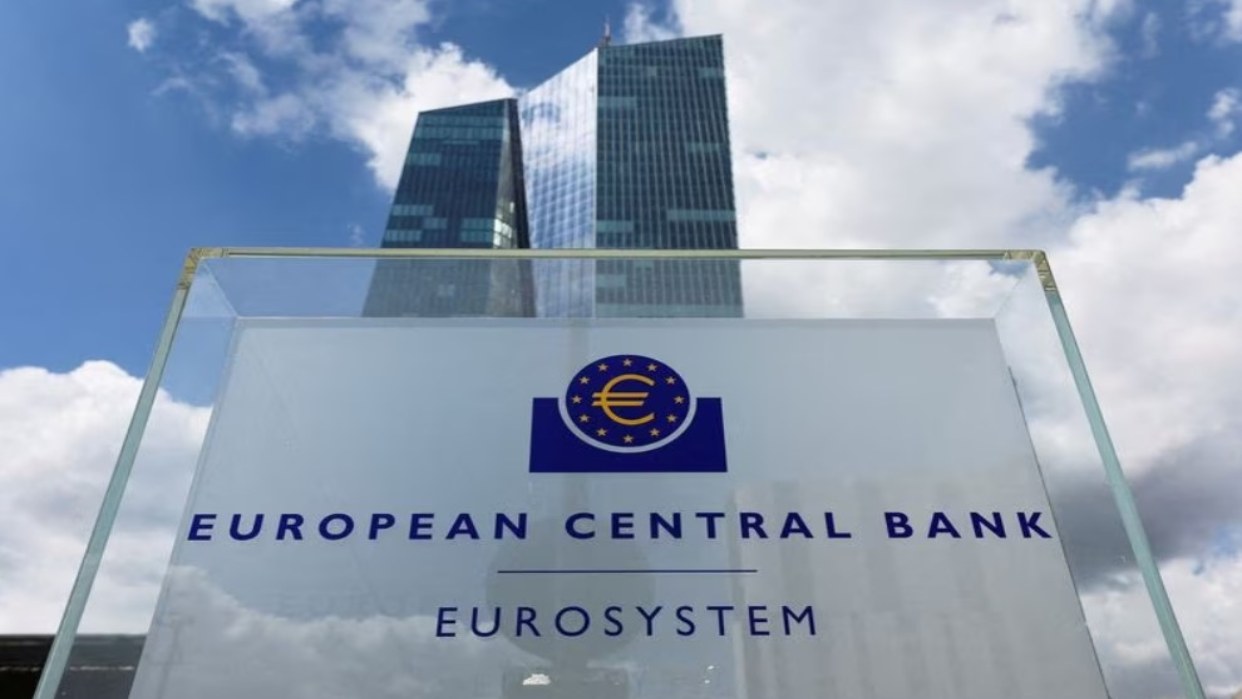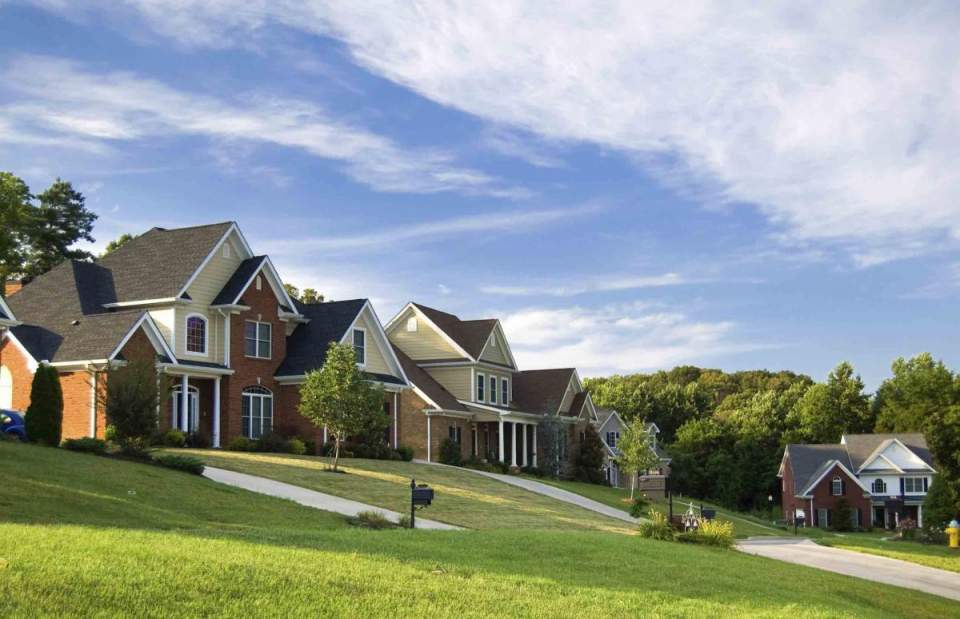European markets have been considered a model of stability for a long time. They may not have delivered high returns, but they were safe investments. That all changed shortly before and at the start of the pandemic. Then demand and prices on the continent surged. Then came the biggest recession of the last decade. But it seems to be coming to an end - and experts are almost unanimous in their comforting forecasts for the coming years.
European Central Bank Rate

In July 2022, the European Central Bank (ECB) raised its policy rate to 0.5% on the back of rising inflation. This happened for the first time in 11 years. Further increases only continued - eventually the rate reached 4.5%.
The sharp rise in the price of mortgages that followed almost simultaneously did not make itself felt immediately. It became more noticeable a year and a half after the first increase. Therefore, the main indicators - the number of transactions and prices - fell the most in the second half of 2023.
The rate started to decrease only recently, in June 2024 - and this is the first time since 2019.
Financial Issue
The European market experienced a crisis, so many potential buyers were forced to take a wait-and-see attitude. Demand has decreased - as a consequence, prices have fallen.
At the same time, the dynamics turned out to be different. The markets of Germany, France and the UK felt the crisis more than others. According to the Global Property Guide portal, taking into account inflation, by the end of the first quarter of 2024, prices in these countries decreased by 2.7% and 7.7%. But in southern countries the growth continued - for example, in Portugal (+8%) and Spain (+3.6%).
Most noticeably in Western Europe property in Greece rose in price: by the end of March, the increase was more than 10%. Some analysts claim that it reached 30%. However, here we are talking about asking prices in some areas that are most in demand (largely due to the ‘golden visa’).
Reasons For Optimism In The European Property Market
Analysts highlight several reasons why the figures differ so much.
- The market fell harder in countries where floating mortgages are popular. Sharp rate changes have affected lending both in the moment and in the long term.
- Apartments in new buildings in most countries continue to be sold at higher prices. The main reasons are stringent environmental requirements, rising material and labour costs. At the same time, prices on the secondary market continue to fall, and the overall decline has been more pronounced in countries where new construction has declined. A typical example is Germany, where the number of building permits in May 2024 was 24% lower than a year ago.
- The decline in recent years follows a marked increase in demand and prices at the end of the last decade and two years of the pandemic. In the first quarter of 2022, for example, housing prices in Germany rose by 12 per cent year-on-year. From 2012 to 2022, secondary housing rose in price by almost 80 per cent. In Berlin, the figures broke all records: prices increased by 120%.
At the same time, for example, in Hellas, the market began to recover only in 2018, and by the end of 2022, housing was still cheaper than in 2010 - even though at that time prices had risen by 8% over the year.
Growth accelerated in 2023 - but Greek property was still a magnet for both locals and foreigners, who, according to last year's data, invested a record amount in buying a home. The market still has the status of one of the cheapest in Europe, so the rise in prices, even with high interest rates, is justified.
Forecasts
Prices in Europe are about to bottom out - if they haven't already. The GPG report showed that in 16 out of 27 European countries, prices had already risen year-on-year by the end of the first quarter.
The reason for optimism, in particular, was the relatively good situation on the labour market. In the eurozone, only 6.5% of the working-age population were unemployed in July 2024. The recovery in household incomes and the decline in mortgage rates should have a positive impact on demand.
The other issue is that this will not happen quickly, especially in Western Europe. According to S&P Global, a widespread recovery will not begin until 2025. The volume of investment will recover as a result of weaker inflation and lower interest rates. Within three years property prices will grow, but moderately.
The forecasts of S&P experts are more optimistic than a year ago, but still modest. In 2024, the strongest property prices will rise in Ireland (+5.8%), Spain (+4%) and Portugal (+3.5%). The largest decrease will be recorded in Italy (-3.7%) and France (-3.5%). In Germany, prices will remain at approximately the same level.
Similar estimates are given by other experts. For example, analysts Zoopla believe that by the end of the year, property in the UK will rise in price by 2% on the back of a slight increase in demand.
Experts' Opinions

Campus Consulting, Germany
Germans can take out a mortgage at 3.5-4%. That's a lot, but any, even minimal, reduction instantly revitalises the market.
In general, I would describe the current situation as ‘sluggish growth’. It is not high interest rates that scare people, but general inflation and political instability. Transport, recreation, food - everything is becoming more expensive. In such a situation, it is scary to ‘fit’ into the mortgage, and Germans are not used to buying with their own money.
An indirect consequence of weak sales was a sharp rise in the cost of mortgages. Another typical German trait is that they often move, for example for work. And it was quite normal to buy a flat for a few years after arriving in a new place, because prices were rising and loans were almost worthless. Now people who know how to count prefer to rent a flat.
And, of course, developers are the worst off. No one starts new construction projects, because it is very difficult to calculate costs and selling prices. So the housing deficit, which was there before the crisis, is only getting worse now. We will see its consequences yet.
RFC Estate, France
The market situation and related statistics vary considerably depending on the region of France in question. Average figures are not very indicative here, especially for foreign buyers, for whom there are essentially two key markets in France: Paris and the Côte d'Azur.
The Côte d'Azur is a special region. In this market, demand for property has been consistently high in recent years, and today there is a severe shortage of offers for sale and rent.
Pandemic and geopolitical conflicts have lingered, while the Côte d'Azur has been relatively calm and stable since the Napoleonic era. Favourable climatic conditions, the association of the Côte d'Azur with success and prosperity, which has been entrenched in the minds of buyers over many decades, has historically created, maintained and will continue to maintain a high level of buyer interest in the region.
Therefore, I have no doubt that the growing demand for property on the Côte d'Azur will cause a search for solutions and proposals from private developers. Due to geopolitical difficulties, a temporary stagnation is possible, as a stage of adaptation to the difficulties of today and new realities, and then a new rise in prices.
Today, French banks offer mortgage financing at an average annual interest rate of 4.5 per cent. Of course, this is a high burden for the buyer, but buyers in the economy segment are much more sensitive to it, due to which the number of mortgage transactions decreased first of all.
AB Property, Italy
Yes, the official statistics is as follows: sales are declining in the Italian market due to high mortgage rates. That is, it is not difficult for an officially working Italian to get a loan, but, say, in 2016 you could take a loan at 2% variable rate and in the same year transferred to a fixed rate (1.8%). Now the average interest on a floating rate is 5%. On the fixed one it is slightly less - 3.5%, but it is almost unrealistic to get it.
At the same time, we do not notice a drop in the Abruzzo and Molise provinces. Not only Italians are buying a lot, but also foreigners, particularly the British and Americans. They are especially interested in cheap options for restoration, as well as property for subsequent rental and the creation of mini-hotels.
The recent years are not favourable: Covid-19, tense world situation, difficult domestic situation. But I am sure that we should ‘sew light dresses from chintz’: Italy is an incredibly interesting and attractive country. It is also as eternal as Rome itself.
Amber Star, Portugal
Rates are now 4.4 to 4.5 per cent. Of course, it is a bit high, but it is better than a few months ago. In any case, there are more people willing to take out mortgages with such conditions.
And the situation is really stable. Firstly, the interest of foreigners is stable. This is noticeable in the tourism sector and in the work of the ‘golden visa’ programme.
Secondly, the Portuguese themselves are reviving. There is state support, especially for young people, who receive benefits when buying a home. And finally, prices in Portugal are still noticeably lower than in Germany, France and the UK. We haven't had crazy highs in recent years, but there has been stability, and it has been maintained even as interest rates have risen. And now it is obviously very much appreciated - especially by foreign buyers.
So, the European real estate market is rather stable and will increase in the near future. In this case, it is reasonable to start buying properties right now!

